Contact me Go to home page
Toshiko (2nd edition, 2020)
*
Michael Kluckner
Second Edition, 2020.
ISBN 978-1-988242-35-4
$19.95
10 pages longer, plus notes, index and bibliography,
with a better explanation of the Big Picture history...

Independent bookstores carry the title, including Iron Dog Books, Book Warehouse (Main Street), Hager Books, and Massy Books in Vancouver.
The big difference between the Second Edition and the First (2015) is the more complex storyline, and additions of a bit of background and history...
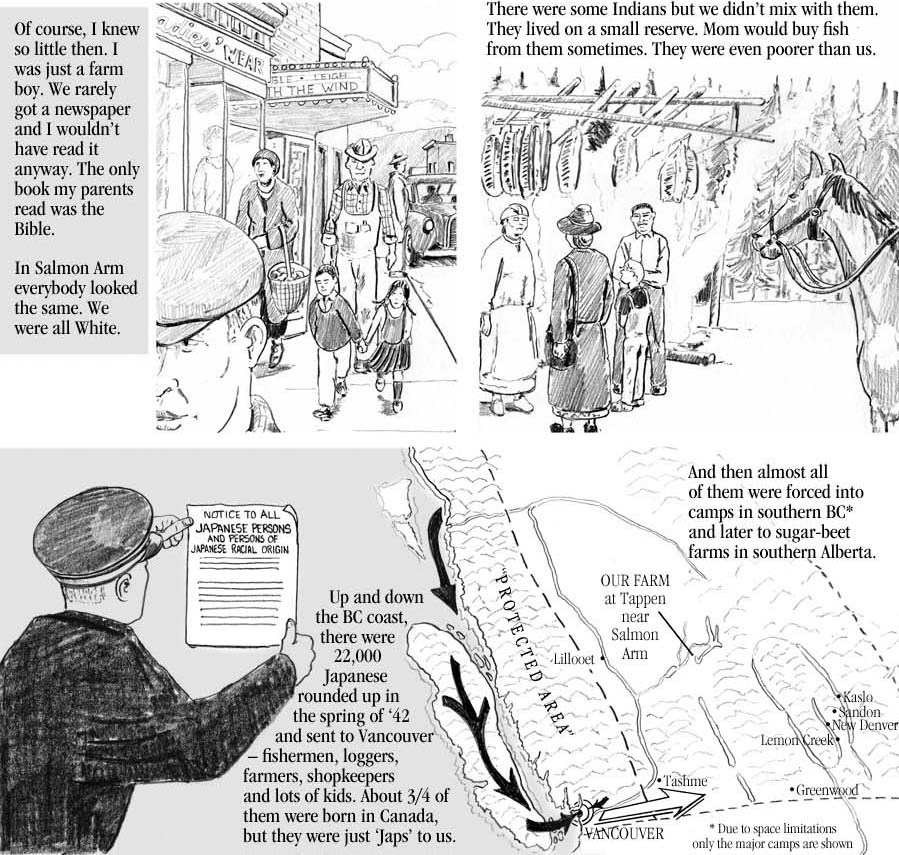
...and more 1940s-style romance and adventure...
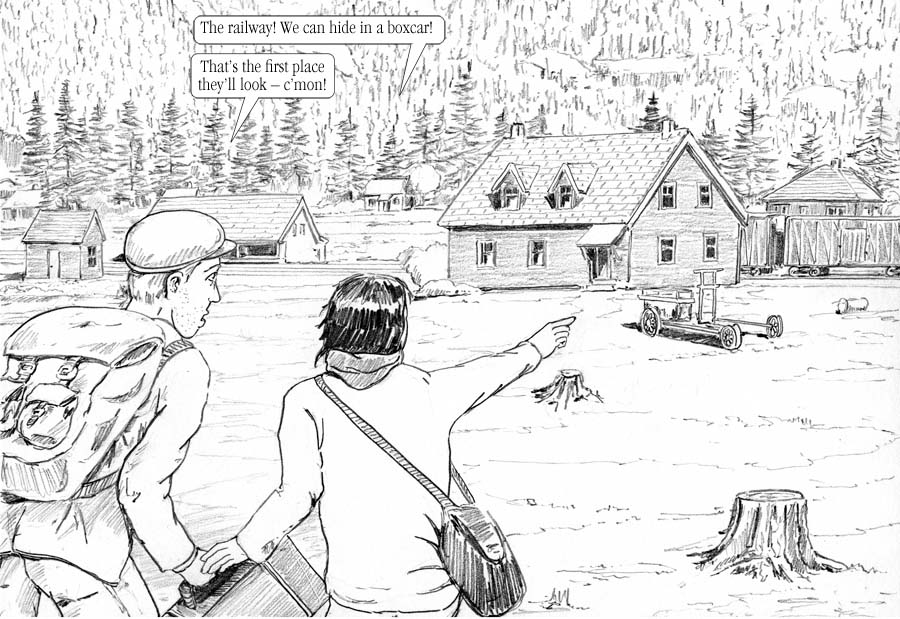
...and a more complete postwar wrap-up.
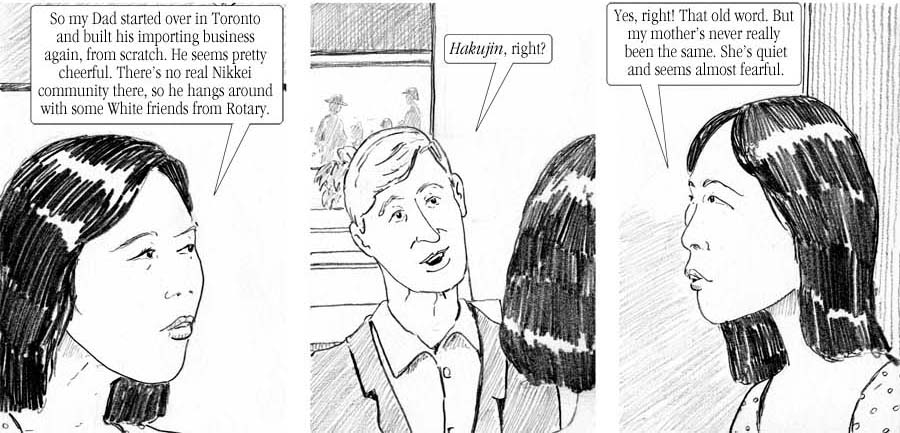
Here are a few more images from the book:
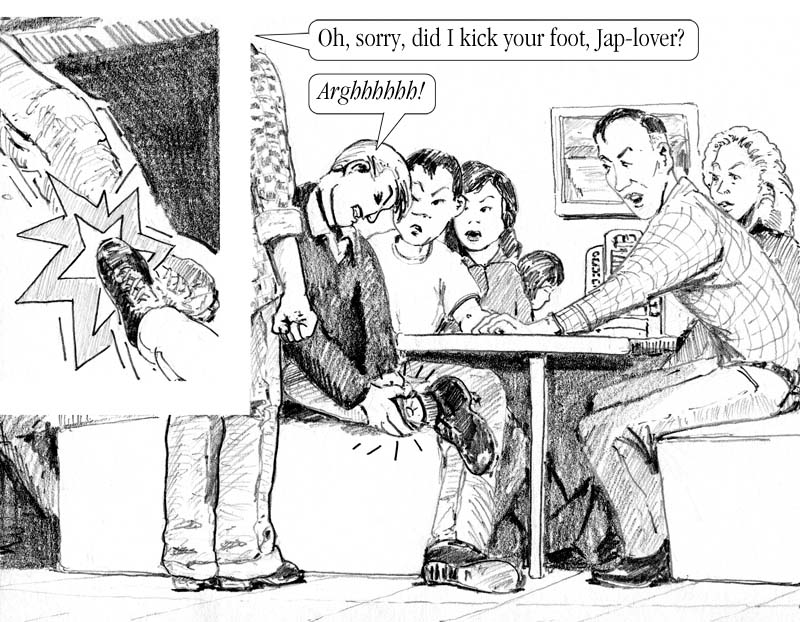
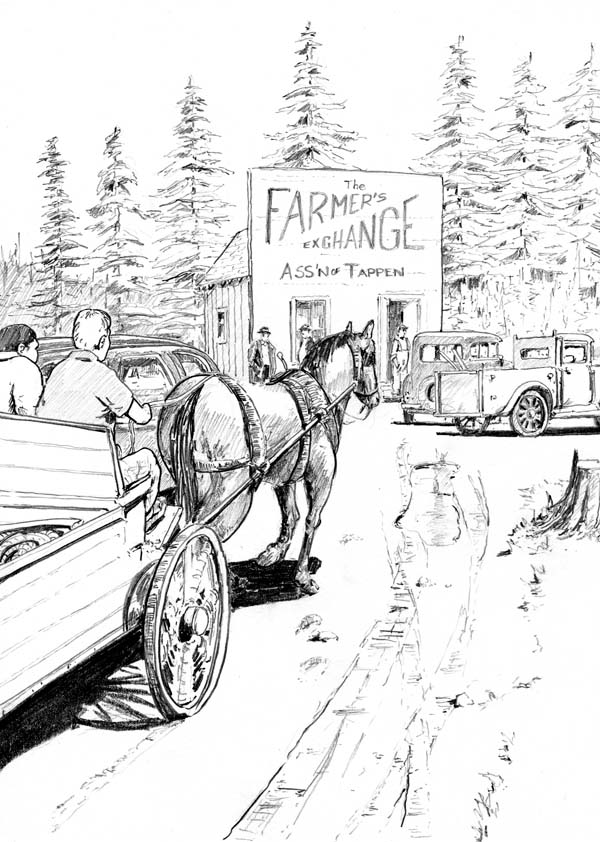
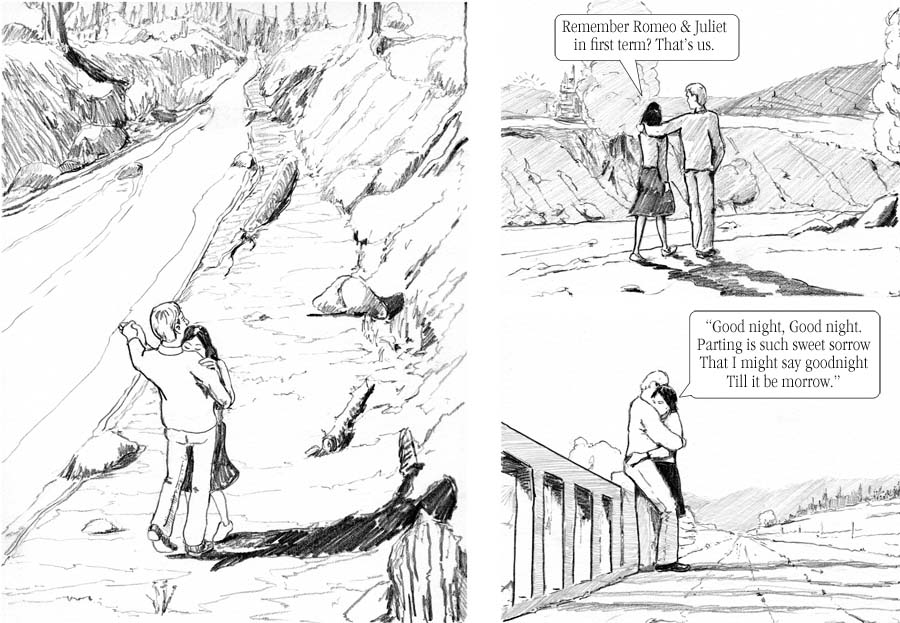
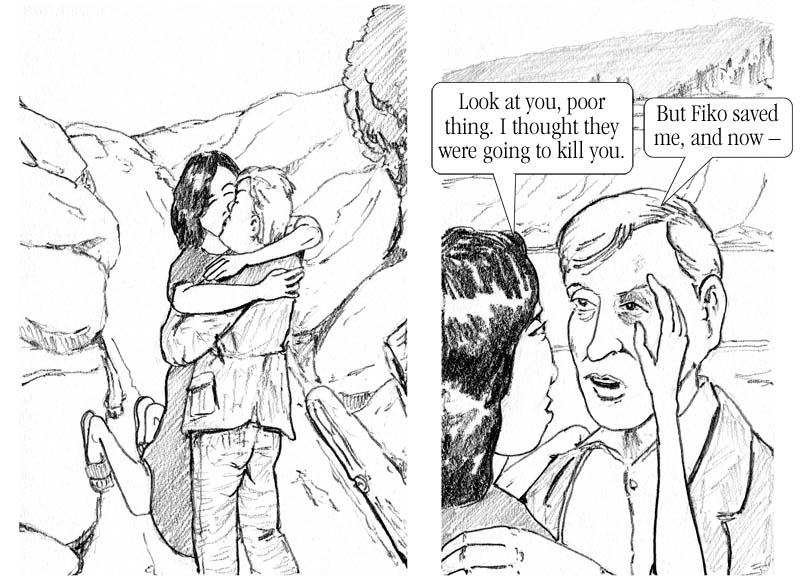
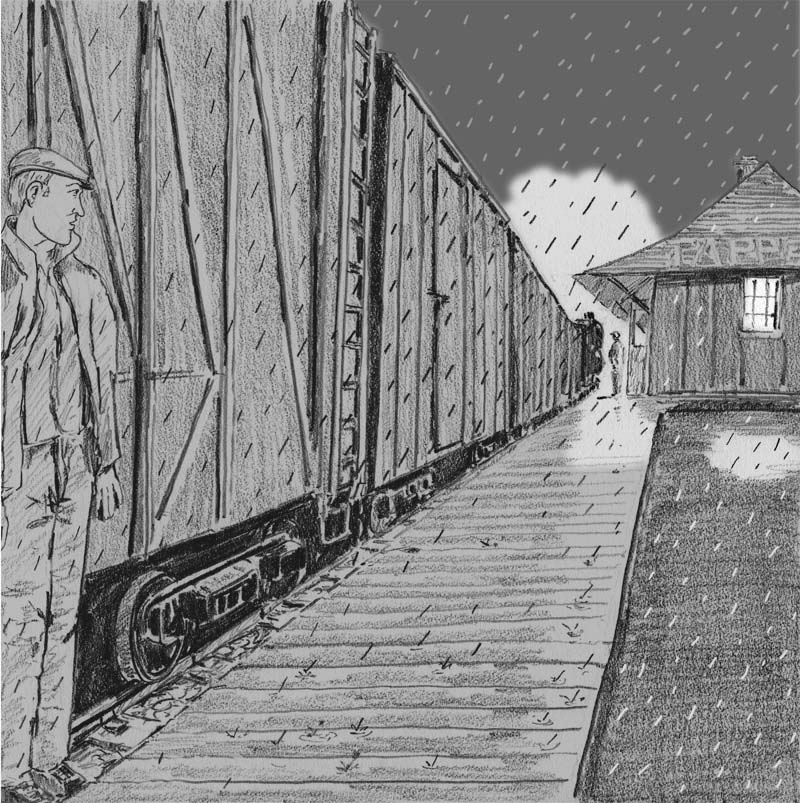
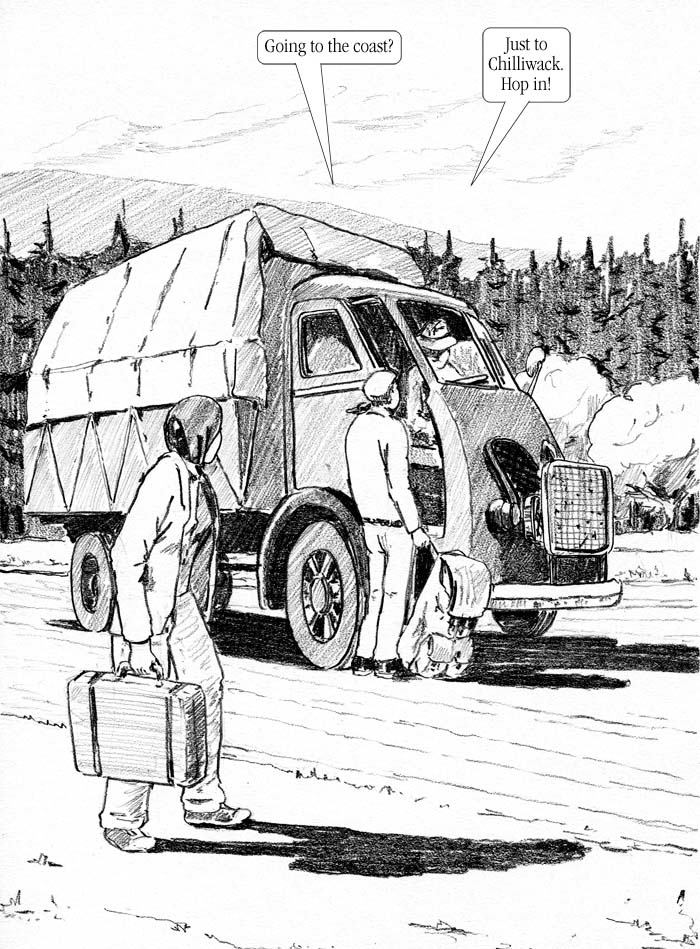
|
Published in English by Midtown Press, Vancouver, and in French by Presses de Bras d'Apic, Montréal Suggested retail: $19.95 (English), $24.95 (French) A convenient way to get the book may be Chapters-Indigo online. As an eBook: https://www.kobo.com/ca/en/ebook/toshiko $9.99 En français: epub: http://vitrine.entrepotnumerique.com/resources/9782924722107 14,99$ A Q&A about the book with McGill University students, 2016. (2021: The book is still being taught in a third-year History course at McGill by Dr. Shelley Butler.) Click below to download a 4-page Teachers' Guide for the first edition 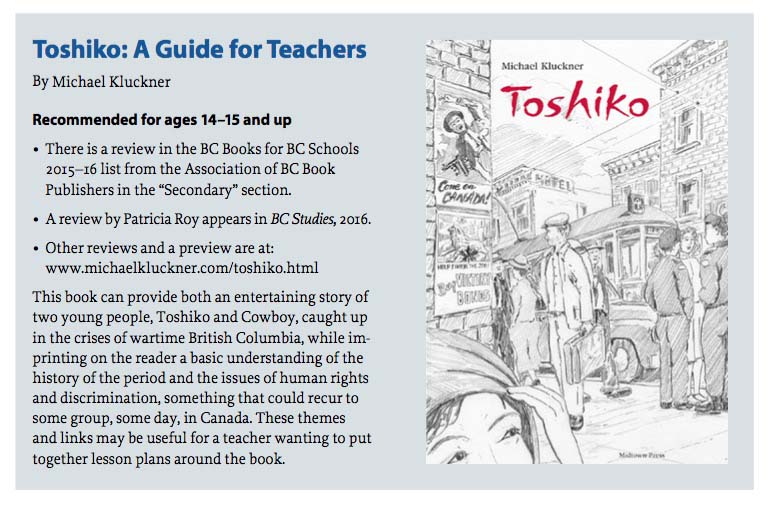 Et cliquez au dessous pour la version française pour la première édition 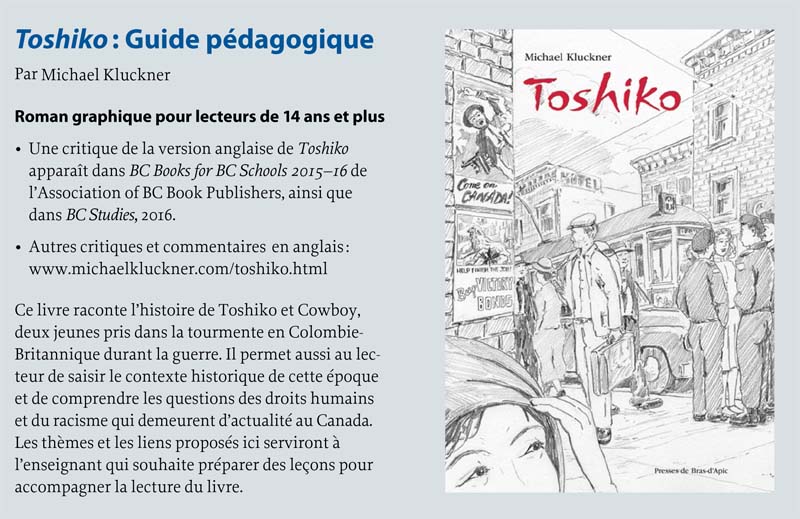 |
The non-fiction inspiration for this story comes, of course, from the experience of Japanese Canadians in BC during the Second World War. Pages on this website that can provide background are the main one on the internment, plus its linked pages, and one that specifically focuses on the Japanese Canadian families in the Shuswap area. |
Reviews and Media
From the Ormsby Review, February 28, 2021
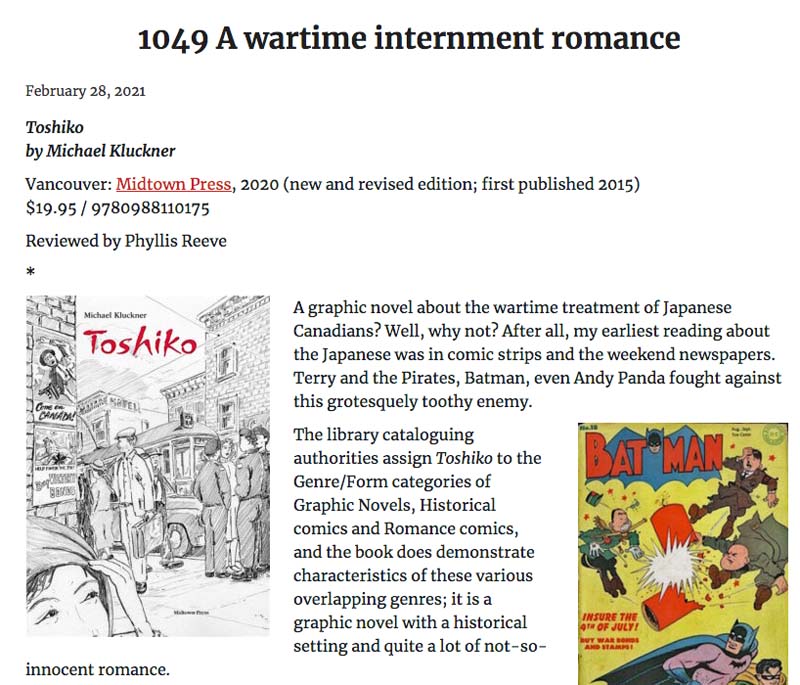
Read the entire review here.
From the Salmon Arm Observer, June 27, 2018
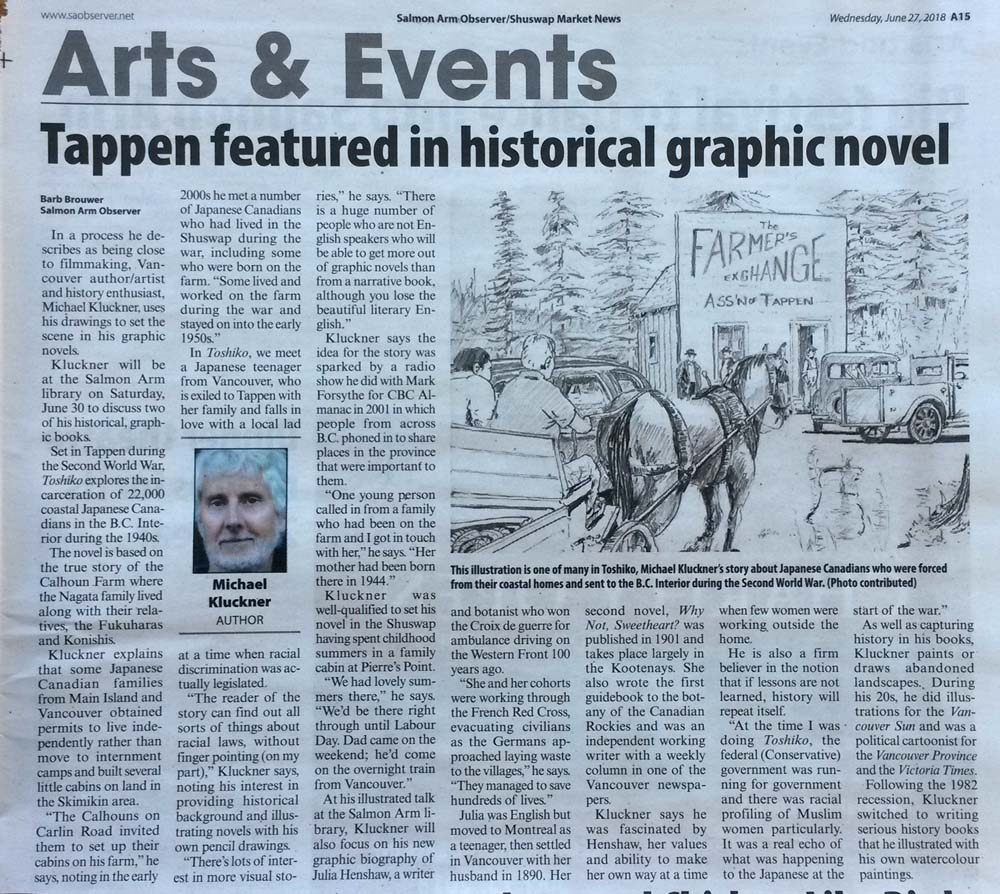
December, 2016
An insightful review essay by K. Jane Watt in BC History magazine
Click on the image below; it opens separately as a pdf.
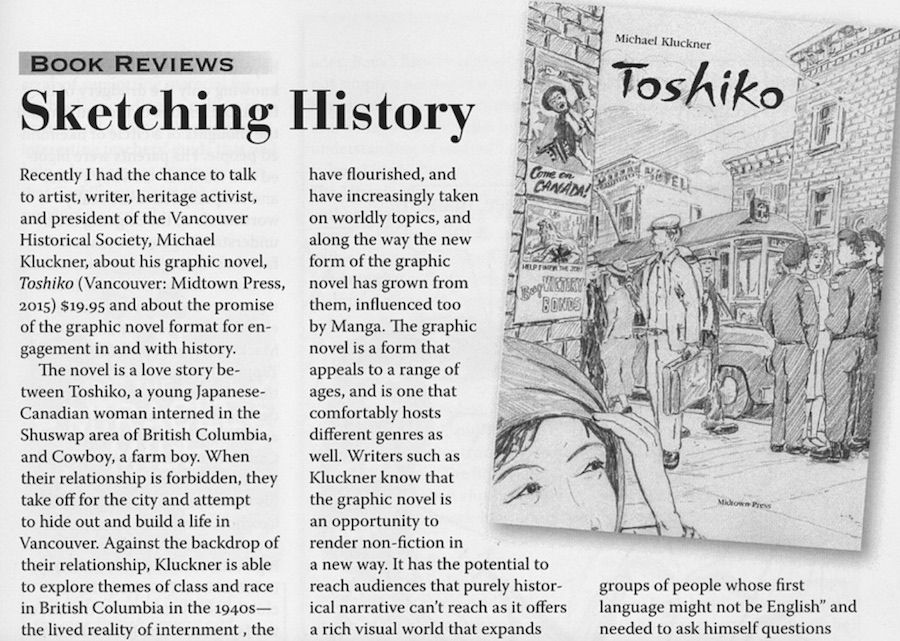
July, 2016
A review in BC Studies, the academic journal, by historian Patricia Roy
On-line here.
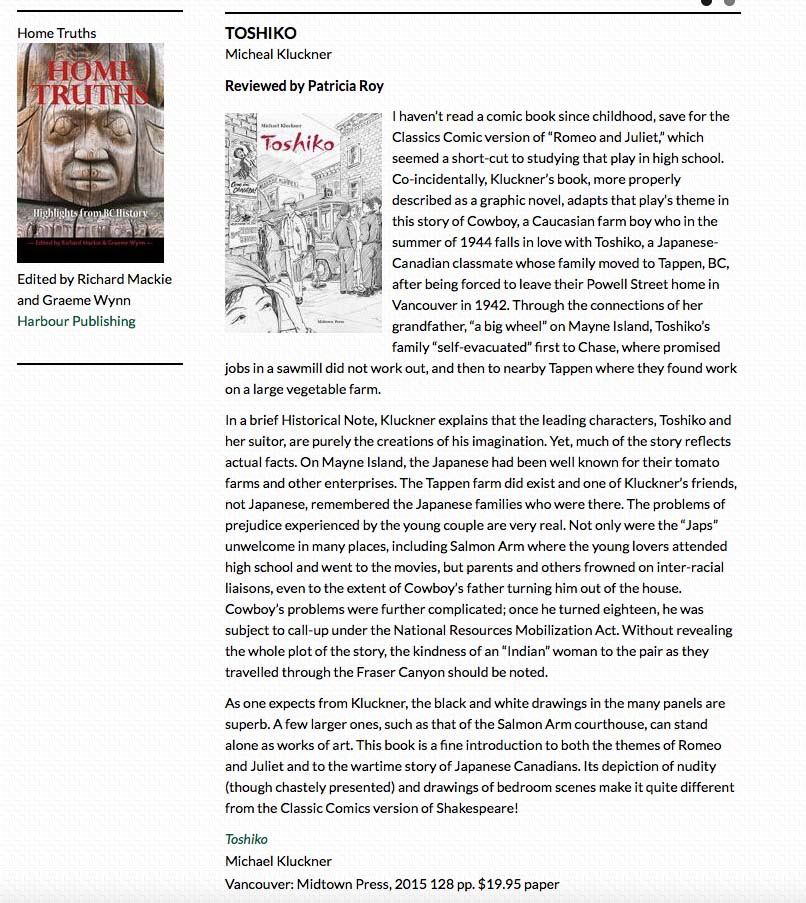
January, 2016
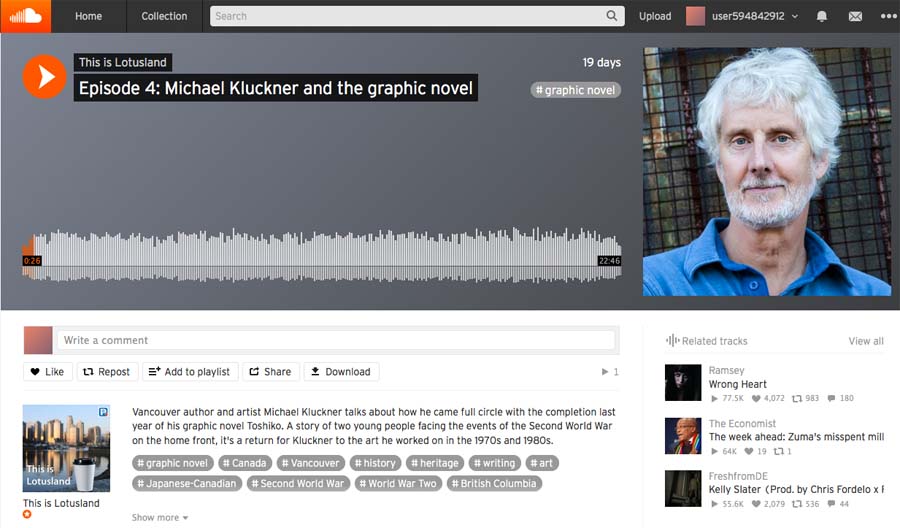
A good long interview about the book, and graphic novels generally, by Barry Link
and, below...
A screen shot from the Victoria Nikkei Cultural Society newsletter:
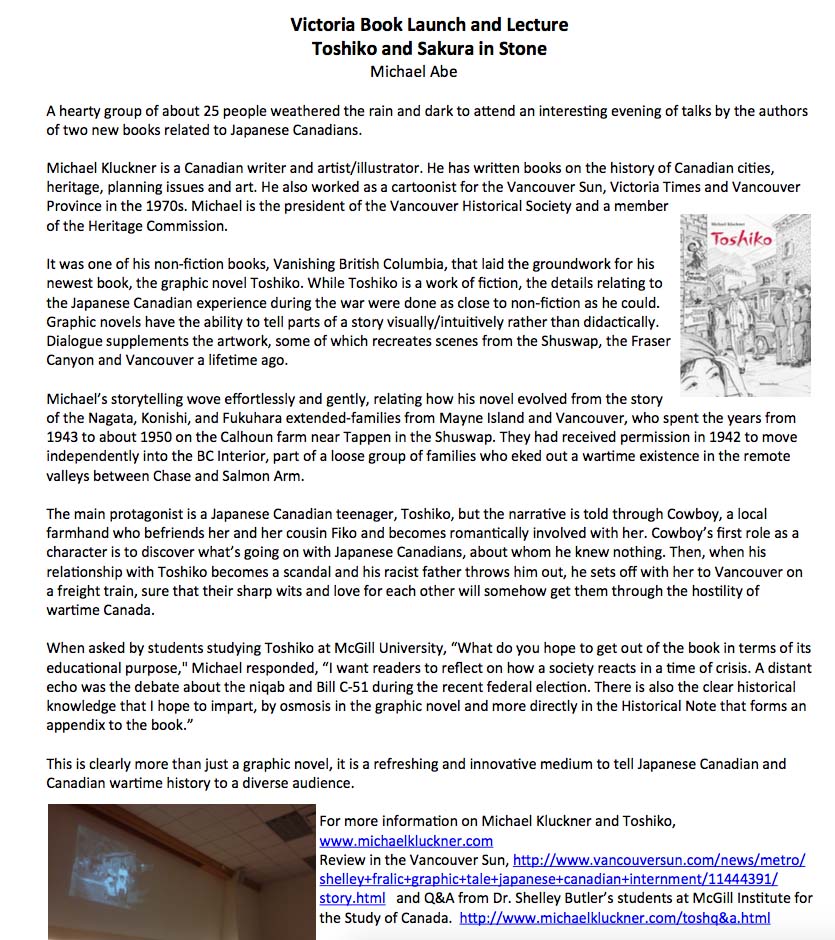
November, 2015
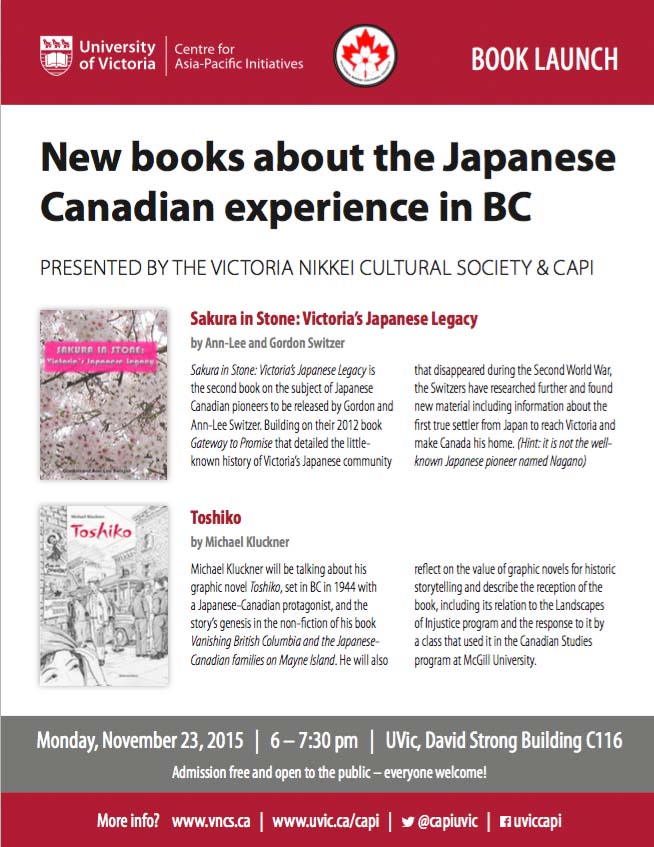
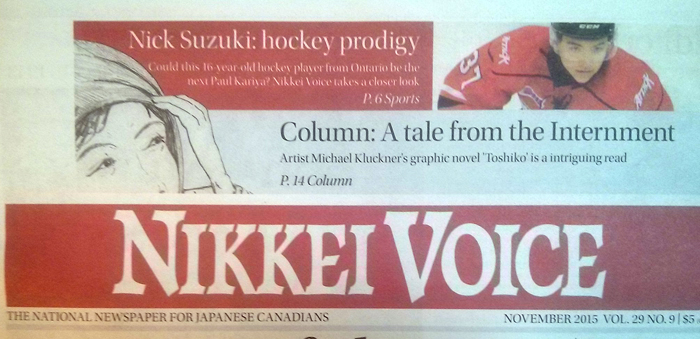
Shelley Fralic's column reprinted in the Nikkei Voice in Toronto
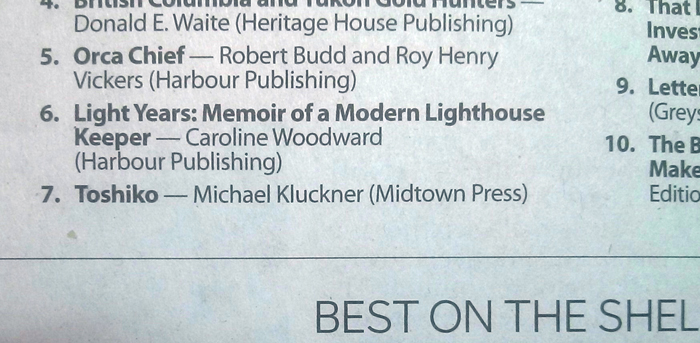
BC Bestseller List for 3 weeks so far...
• A review in La Source, the French community weekly newspaper in Vancouver
• A review in Canadian Jewish News by Norman Ravvin, published on paper in Toronto and Montreal
October, 2015
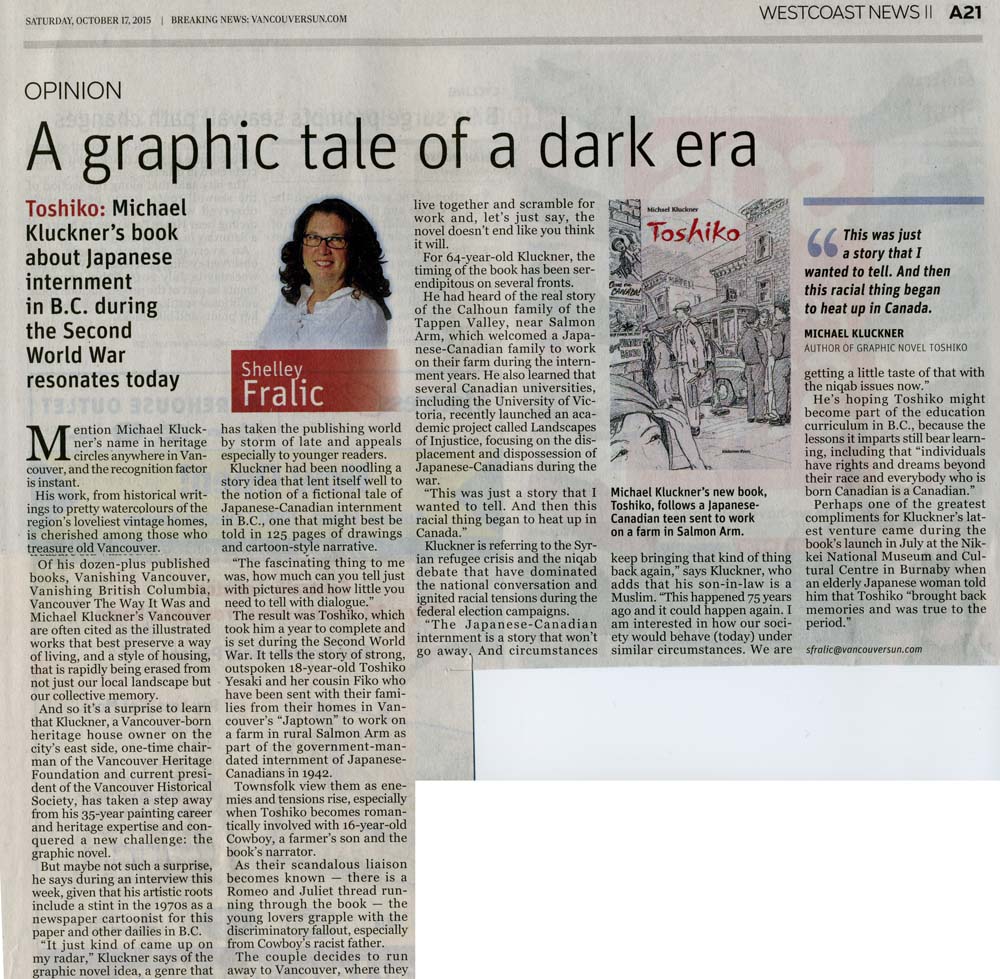
|
or read it online here. *** From Norman Ravvin, writer (of The
Joyful Child, Lola by Night, Hidden Canada: An Intimate
Travelogue, and Sex, Skyscrapers, and Standard Yiddish, among
other books) and teacher (Professor at Concordia University):
I'm writing to let you know how much I like and admire Toshiko. It's got a limber way with narrative -- moving lightly over quite a sweep of events and young lives and landscape. You convey the peculiarity and cruelty of the war years for the B.C. Japanese community, and the confusion and stupidity of the mainstream Canadian way of handling things related to the "enemy" at home. The place – rural B.C. and then Vancouver – comes across with great vitality. I'm most moved by the portrayal of wartime Vancouver flophouse and street life, along with the between-the-cracks way of living in squatters' shacks, picking up odd jobs. The whole thing seems surreal, but you lay it down concretely. Like your other work, the things Vancouver used to be come into view, and I'm sad for not having experienced them myself. Romeo and Juliet float nicely through it all. I'm glad I have it to show people and I'll let you know when Shelley teaches it at McGill. I would think it would have a very clear impact on young Canadians who will know little to nothing about what you have to tell. ***
From Chris Pearson, Art History
Faculty, Capilano University: "I really found the narrative
engaging and believable, and the locations so vivid. The
scenes in old Vancouver were marvelous, like travelling back
in time. What a lot of research this must have entailed! I
really liked the way you show the unexpectedly complex
interplay between all the different ethnic groups in the
province, and the varied and interesting permutations this
could entail. The ‘young love’ theme (definitely sexy!) was a
brilliant way of bringing readers of all backgrounds right
into the emotional heart of the narrative, something we can
all relate to. One value of a book of this kind is to make you
feel more 'at home' in the place you grew up in, I think.
Vancouver and BC seem to be all about the transitory and the
expedient these days, and to have a bit of historical
grounding—even as the actual built environment of that period
vanishes before our eyes—is somehow reassuring."
September, 2015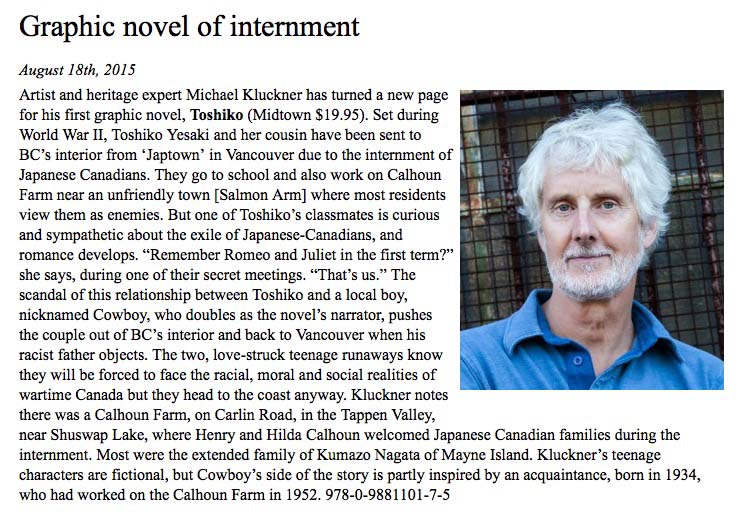 August 11, 2015 From Caroline Adderson, author of novels, short stories, and children's books, as well as host of the Vancouver Vanishes page on Facebook: "Toshiko was a delight. I loved the Romeo and Juliet through-line and how Toshiko and Cowboy played out that story in a way that is so specific to a time and place: BC during the internment. The endnotes and illustrations added so many interesting layers. Vanier Park an army base? Who knew? (Well, you did, obviously!) My favourite frame is the one where you give the cow a voice. Thanks so much for this wonderful book." August 7, 2015 |
July 18, 2015
July 28, 2015
(My French is not good enough to survive a rapid-fire Radio Canada interview!)
Contact me Go to home page
Artwork & text © Michael Kluckner, 2015